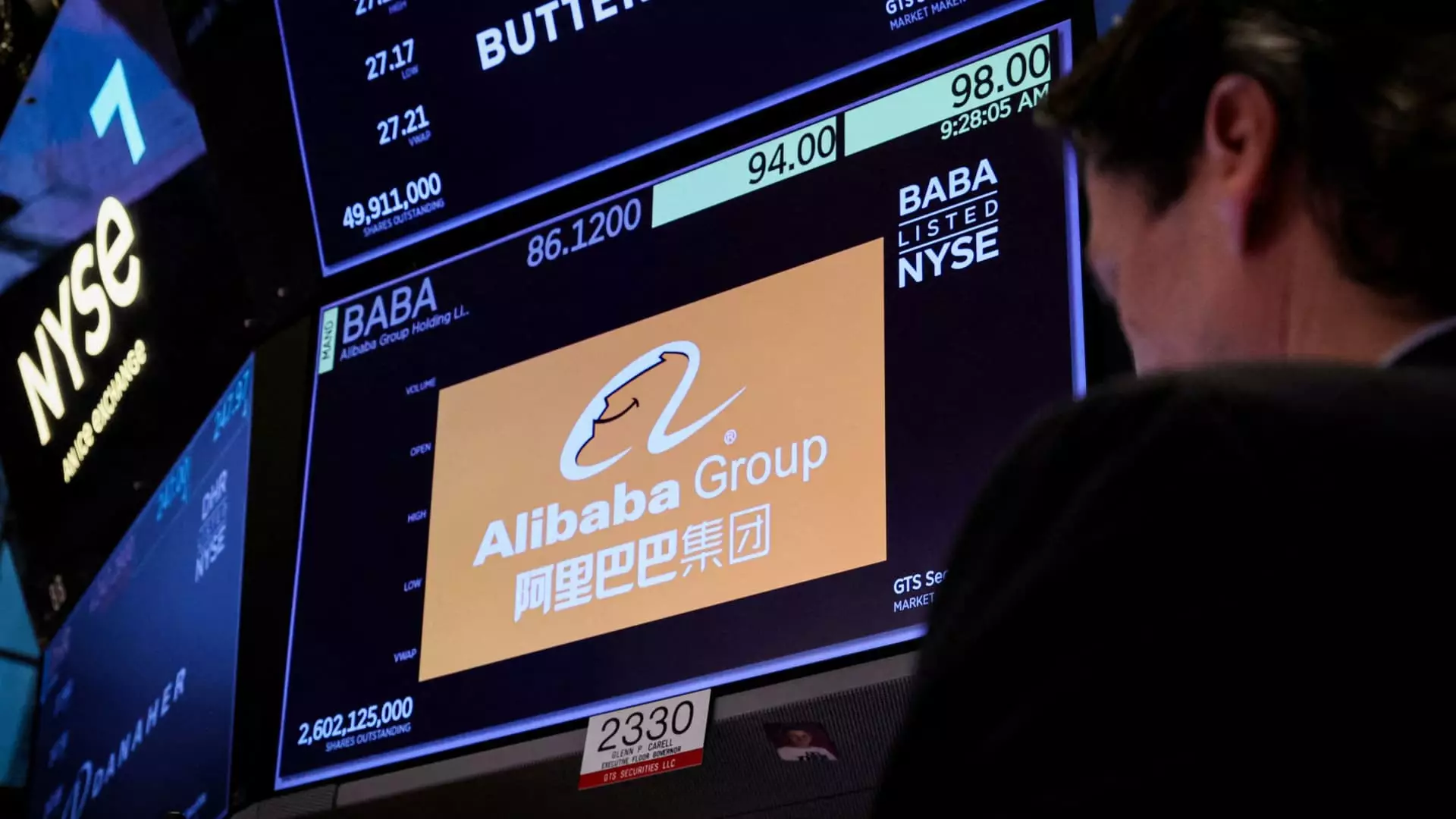In the ever-evolving landscape of global technology, Alibaba Group Holding Limited has found itself at the forefront of investor interest, particularly in the emerging field of artificial intelligence (AI). With its shares, traded in the U.S., climbing nearly 70% in 2025 so far, the company is being recognized as a leading player in the Chinese AI market. Notably, Alibaba reported impressive growth figures for its AI-related products, showcasing a robust revenue increase of triple digits for six consecutive quarters, leading many analysts to predict further gains.
Alibaba’s performance has largely been attributed to its innovative AI initiatives, most prominently represented by the Qwen AI model. Qwen has begun to carve out a competitive niche, positioning itself as a serious contender against well-established rivals such as DeepSeek. Additionally, Alibaba secured a significant contract for iPhones sold in China, bolstering its presence within the technology ecosystem.
The resurgence of Alibaba can also be traced back to the high-profile reappearance of its founder, Jack Ma. His recent attendance at a meeting with President Xi Jinping, which included notable entrepreneurs like DeepSeek’s Liang Wenfeng, not only signals a reopening of the channels of communication within China’s leadership but also rekindles investor confidence in Alibaba’s strategic future. Such developments contribute to a more optimistic outlook, with firms like Jefferies projecting a price target of $156 for Alibaba shares, indicating potential for continued growth.
The renewed investor enthusiasm for Alibaba comes at a time when other significant players in the Chinese technology space are also vying for attention. The parent company of Temu once overshadowed Alibaba in market capitalization but has since seen a shift in investor sentiment. As consumer spending patterns evolve, Taobao and Tmall Group demonstrated a 5% sales rise in the last quarter. However, responses to the broader AI trend indicate that investor appetite has not swelled at the same pace in China as seen in the U.S. market, where AI-related stocks have experienced a significant crowding-in effect.
Indeed, recent data from UBS reveals a modest increase in crowding scores for Chinese AI stocks compared to a more pronounced surge in their U.S. counterparts. Alibaba leads the pack in crowding among major Chinese internet technology firms, elevating its profile even amidst broader concerns about market competition. Analysts note that stocks exhibiting reasonable yet improving crowding tend to perform well in the short term, which bodes positively for Alibaba’s near-term prospects.
Despite the optimistic projections from analysts, caution persists within the investment community. JPMorgan, for instance, adopts a neutral stance towards Baidu while maintaining an overweight rating on both Tencent and Alibaba. Their projections suggest varied price targets and growth outlooks, highlighting divergent paths based on individual company strategies and market dynamics.
However, Morgan Stanley’s more skeptical analysis warrants attention. Their equal-weight rating alongside a significantly lower price target of $100 illustrates concerns about Alibaba’s escalating capital expenditures, which surged to 11% of revenue in the latest quarter compared to just 3% previously. Such increased investment could place pressure on future profit margins—an aspect management has highlighted as an area of concern. Additionally, potential downturns in consumer spending and the gradual pace of enterprise digitalization remain crucial risk factors that could impact the company’s trajectory.
As we analyze Alibaba’s current standing in the market along with its future prospects, it is clear that the company has staked its claim as a frontrunner in the AI space. However, while its recovery is promising, it is also juxtaposed against a backdrop of cautiously optimistic perspectives from analysts, reflecting the complexities inherent in navigating the Chinese tech ecosystem.
Alibaba’s resurgence amid the AI boom signals a pivotal moment for the company. It must effectively balance investment in innovation with the operational challenges that arise from increased expenditure and external market factors. As such, the coming quarters will be crucial in determining whether Alibaba can sustain its current growth trajectory or face headwinds that could curtail its ambitions.

